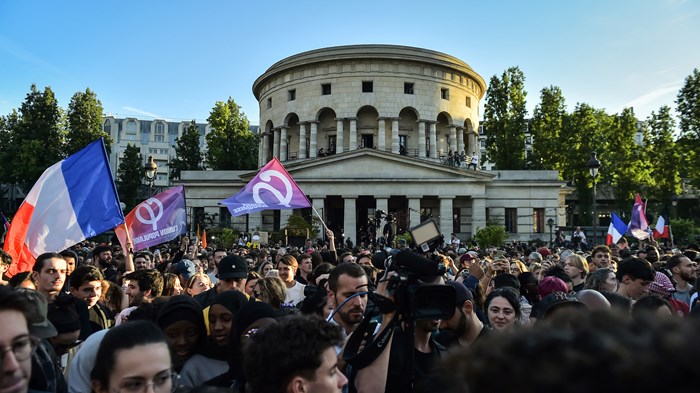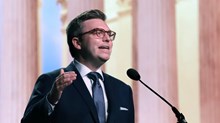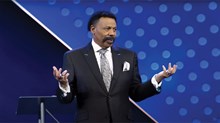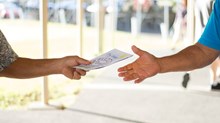
Like the rest of the country, French evangelicals went to the polls on Sunday for the second round of parliamentary elections in what became a showdown between the far right and the rest of the country. The Nouveau Front Populaire (New Popular Front), a fragile new coalition of leftist parties, formed a “Republican front” with the centrist parties allied with President Emmanuel Macron. While this strategy successfully kept Marine Le Pen’s Rassemblement National (National Rally) in third, neither the leftist nor centrist parties won an outright majority in the National Assembly, a situation which may result in numerous political stalemates in the months to come.
French evangelicals represented only a tiny number of Sunday’s voter turnout; about 60 percent of all voters in the country of nearly 68 million showed up, the largest turnout since 1981. At 745,000, the number of evangelicals has grown by nearly 100,000 in recent years but remains squarely on the margins.
Despite their community’s size, French evangelical leaders have regularly engaged the challenges affecting their country, such as weighing in on concerns over Islam and free speech, speaking out about a bill trying to end Muslim separatism that could make churches collateral damage, and articulating their pro-life values after the country enshrined abortion into the constitution.
Prior to the June 30 first-round election that preceded yesterday’s runoff, the Conseil National des Evangéliques de France (CNEF, National Council of Evangelicals in France) called on believers to pray, to be discerning, and to vote.
“Politics cannot do everything,” the press release stated, noting that in such troubled times evangelicals whose ultimate hope is in God should act in accordance with their hope and “be catalysts of peace, seeds of life, actors of reconciliation and hospitality.”
Given the historic moment in French politics and evangelicals’ miniscule electoral presence, Christianity Today asked Christian leaders what role French evangelicals can play in such a fraught era.
Erwan Cloarec, president of CNEF
In this time of division and national confusion, the churches in France must, more than anything else, show by what they are that another society is possible—a society in which the divisions of origin, gender, and social condition that fracture humanity do not prevail.
This is the meaning of “neither Jew nor Greek, … neither slave nor free, … neither male nor female” of which the apostle Paul speaks in his letter to the Galatians (3:28, NASB). We owe this example to the world, and we owe it to ourselves to ensure that the divisions and invectives that plague global society are not imported into our communities.”
Rachel Calvert, president of A Rocha France
Many French evangelical churches bring together people from diverse political, ethnic, and socioeconomic backgrounds. In this fractured political climate, our contribution must involve serving those who are “not like us” as well as practical care for God’s creation.
We grieve at the rise of a party which has seduced voters by promising short term relief, while scapegoating migrants and largely ignoring longer term issues such biodiversity loss, environmental degradation and the impact of climate change. Yet we can and will continue to bear witness to the God who is reconciling all things to himself in Jesus.
Matthew Glock, missionary, pastor, and coordinator of CAEF’s (Communautés et Assemblées Évangéliques de France) church planting commission
The snap election called for by President Macron offers a window to the disorder of French politics and the ineluctable movement of many voters to the extremes of the political spectrum. It is difficult to imagine, within this reality of national politics, how the evangelicals in France could have a role, but on a local level there is much to do.
The way to offer hope in these confusing times is to follow Jesus Christ’s command to “love your neighbor as yourself.” By following Christ’s example of sacrificial love, the church has much to offer.
Caroline Bretones, pastor of Église protestante unie de France (United Protestant Church of France)
Persecuted for more than two centuries and very much a minority, Protestants have learned to live discreetly in France while developing a keen sense of responsibility, freedom of conscience, and social commitment. If they have a decisive role to play today, it is not by making public statements that demonize certain parties while implicitly stigmatizing their voters but rather by continuing to unite extremely diverse men and women (ethnically, culturally, socially, and professionally) around a Christian hope that transcends [not only] human divisions but also frustrations and easy solutions.
As Christians, our belonging together to the kingdom of God must take precedence over any other citizenship of this world and enable us to open up spaces for dialogue and communion where divisions threaten.
Françoise Caron, president of the Fédération Nationale des Associations Familiales Protestantes (National Federation of Protestant Family Associations)
The Bible encourages us to seek the “welfare” of our city and country, because our own welfare depends on it.
I see seeking welfare as praying for our country and those in power. It also means being at [our leaders’] side whenever possible in order to be peacemakers and witnesses and spokespersons for those who suffer, acting on their behalf. It's taking our place as representatives of civil society, bearers of gospel values, in the places where we can be heard and can give advice.
In addition, this means being at the heart of what is happening in our towns and neighborhoods so that our words are followed by deeds.
Finally, it means always choosing to imagine what Jesus would do in our place! We can and must have a calming influence in society and be a source of reconciliation. We can denounce things that aren’t good. We can assert gospel values through concrete actions and words of respect and goodwill.
We are known by our fruit, and that's what can make the difference in these troubled times!
Nicolas Blum, Groupes Bibliques Universitaires (University Biblical Groups) staffer, and elder at Ternes evangelical church, Paris
In France, evangelical churches are among the few places where the three words of our national motto—“liberté, égalité, fraternité” [liberty, equality, fraternity]—are lived out. We would like to invite our fellow citizens and political figures to discover this Christ-based ability to live well together even though we have differences—we experience generational, social or cultural differences as assets rather than factors of division or rejection.
Fidelity to the Gospel and the witness of Christian hope lived out on a daily basis, with joy and real love for each other—these are the contributions we can make to bringing peace to our society. The change our country's inhabitants need right now is Jesus!

Support Our Work
Subscribe to CT for less than $4.25/month


















